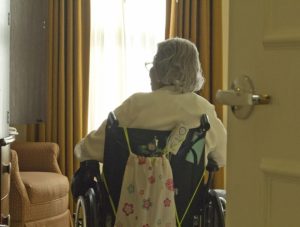The organizational structure of nursing homes and long-term care centers throughout the country has created challenges for nursing home negligence lawyers seeking to hold these companies and staffers accountable for abuse and neglect of the elderly. 
It used to be that in most cases of nursing home abuse or neglect, plaintiffs could be relatively certain that a lawsuit naming the facility and/or its staffers would generally cover all possible defendants. What we are seeing more frequently is a situation where nursing homes use complex management structures that obscure the entities responsible for delivering care. They often set up a number of sub-companies that de-centralize ownership and separate real estate ownership from operations, etc. All that can make it difficult for residents and their families to seek compensation from the appropriate parties through litigation.
That was an issue that cropped up in the case of Maree v. Neuwirth, recently before the Oklahoma Supreme Court.
According to court records, plaintiff is the daughter of a woman who was an elderly patient at defendant nursing home in 2011. Patient reportedly fell and two days later, she died.
It was later revealed in plaintiff’s nursing home negligence lawsuit that at the time of her mother’s fall, she’d been trying to summon staffers to help her get to the toilet. Plaintiff alleged those staffers did not respond timely to her request, and gave her no choice but to try to get to the restroom on her own, or else soil herself.
The level of staffing and the policies in place to address response to call lights, plaintiff rightly argued, was the responsibility of the nursing home and its management company. She alleged the nursing home breached its contract with her mother to provide physical care and supervision, and further breached its contract with the state by failing to abide state laws and regulations pertaining to long-term nursing homes. Her mother, she said, was the intended third-party beneficiary of the nursing home’s contract with the state.
Two years after filing the lawsuit, plaintiff moved to amend and add additional defendants against whom she would also assert claims of negligence. She said she had just become aware of certain individuals and entities that were actually a part of the named defendant and who participated directly in day-to-day operations. She alleged these parties were responsible for oversight with regards to staffing, hiring, budgeting, personnel, policy and procedures.
Those parties moved for summary judgment on the grounds that by that time, the statute of limitations had passed.
The trial court denied her motion to amend, and she filed a request for review by the state supreme court, asking for a writ of prohibition to prohibit the judge from enforcing his order. The state supreme court granted review and granted the writ of prohibition. The trial court had issued its ruling without allowing plaintiff the time to engage in discovery so she could develop her claims. Further, plaintiff’s request for an amended pleading relates back to the original pleading, and the trial court made no ruling concerning the relation back of amendments.
Call Associates and Bruce L. Scheiner, Attorneys for the Injured, at 1-800-646-1210.
Additional Resources:
Maree v. Neuwirth, June 7, 2016, Oklahoma Supreme Court
More Blog Entries:
Fatal Motorcycle Accidents in Florida Up 23 Percent, June 8, 2016, Fort Myers Nursing Home Abuse Lawyer Blog
 Florida Injury Lawyer Blog
Florida Injury Lawyer Blog





